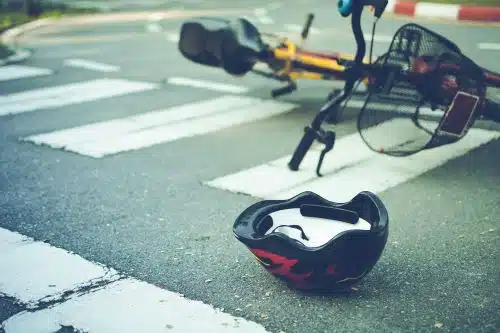
Suing the Driver
Unfortunately, about 12.4 percent of motorists in the state are uninsured, sometimes for financial reasons or because of legal difficulties like repeated DUIs. A driver who doesn’t have liability insurance can be personally liable for any damages they cause in an accident, but this isn’t always a good option. If the driver has no significant assets and you have a large amount of damages, it may be difficult or impossible to collect an award even if you win in court.
Uninsured/Underinsured Motorist Coverage (UM/UI)
Did you know that uninsured/underinsured motorist coverage applies to any car accident you’re involved in, whether or not you’re in your own vehicle? Many people don’t know this, but UM/UI will cover accidents where you are a pedestrian, bicycle rider, or even a passenger on public transportation. UM/UI also covers hit-and-runs, so if the driver who hit you took off and the police can’t find them, you can still seek compensation from your own insurance.
Georgia law requires insurance companies to offer UM/UI coverage, but motorists can opt-out. Unfortunately, doing so could limit your options if you’re ever injured by an uninsured or underinsured driver, whether on a bike or in your car. While only buying liability insurance can lower your premiums, adding UM/UI will give you coverage in situations involving an uninsured driver.
Suing a Third Party
This isn’t an option in every case, but your lawyer will consider whether there are any potentially liable third parties for your situation. Some examples of third-party liability include:
- Defective products or services. If a defective car component, bike part, or piece of safety equipment caused or contributed to the accident or made your injuries more severe, you might have a claim against the manufacturer. For example, if the strap on your bike helmet snapped, causing the helmet to pop off your head and fail to protect you from a head injury, you might have a case with the helmet manufacturer. Or if the car that hit you suffered an unexpected brake failure even though the car’s brakes had recently been serviced, you might have a case against the brake manufacturer or service provider.
- Dram shop laws. Under Georgia law, there are some situations where a third party may be held liable for drunk driving accidents. Obviously, the drunk driver is usually the first person held liable, but if they are uninsured and have few assets, a lawsuit against them might be a waste of time and money. In these circumstances, you might be able to bring a case against a restaurant, bar, or club that overserved a patron who was already intoxicated. It will be necessary to prove that the server knew or should have known the patron was already inebriated and that they were likely to drive.
What Should I Do After I Get Hit by a Car While Riding My Bike?
First, always get medical attention for your injuries, even those that seem insignificant. Getting hit by a car while on your bike can be very traumatic, and for many people, the adrenaline rush suppresses feelings of pain for a little while. Additionally, some injuries may be more painful the next day, when inflammation and swelling can occur as the body tries to heal itself. Back or neck injuries can also be tricky and may not show symptoms for a few days. If you have any pain or increase in pain in the days or weeks after your accident, we recommend following up with your doctor.
If you’re able, take pictures of the scene, your bike, the damaged vehicle, and your injuries. Ask for the driver’s contact info and insurance card, but try to avoid arguing about fault or the fact that they don’t have insurance. We know the situation may be frustrating, but sometimes disputes can escalate. If the driver doesn’t want to show you their identification, let the police handle it. They are required to verify insurance coverage and identity at the scene of an accident.
The responding officer will ask you questions about the accident and what happened. You should answer honestly, but there is no need to volunteer information they don’t ask about. Never say that you think the accident was your fault – we’ve met many people who were mistaken about this, and erroneously admitting fault can complicate any insurance claim you file later.
Get a copy of the police report on your accident – this should become available within a week of the crash, sometimes sooner. The responding law enforcement agency may have instructions on obtaining a police report on its website. If not, you can call the department’s non-emergency line and ask how to get your report. Typically there is a small fee, usually around $5.
Contact the CEO Lawyer Personal Injury Law Firm to Learn More
Figuring out the next steps for obtaining compensation can be challenging. It’s a good idea to report the accident to your insurance company and tell them you were hit by an uninsured driver. Then, contact a Georgia car accident lawyer to discuss what you should do next. We may recommend filing a claim against your own insurance, or we might consider one of the other options.
The CEO Lawyer Personal Injury Law Firm was established by attorney Ali Awad and quickly became one of the fastest-growing law firms in the country. We work to help injured people get the compensation they need to cover damages like medical bills, lost income, pain and suffering, permanent disability or disfigurement, and more. Our firm works on a contingency basis, so if we take your case, we don’t charge any fees until we secure a settlement. You never have to worry about paying anything upfront because we want you to focus on your recovery. Your initial consultation is also free, and there is no obligation so that you can learn more about your options with no risk.



